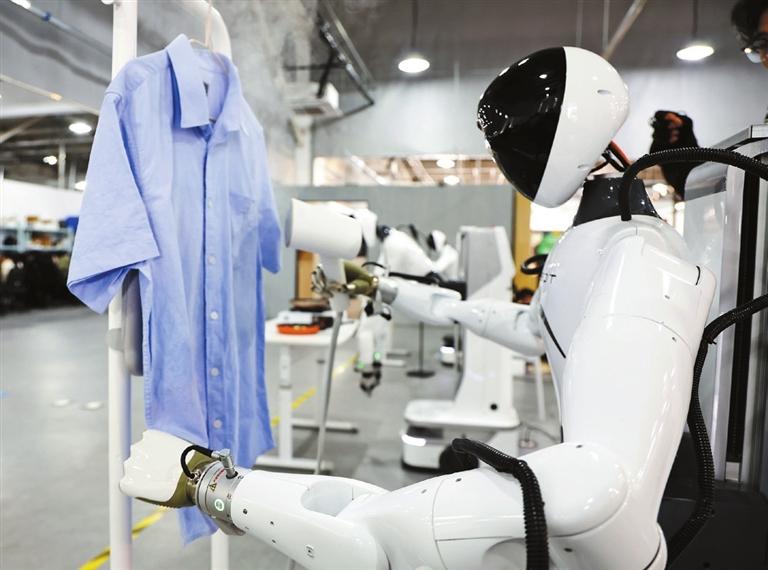

IT'S now possible to buy robotic domestic help on JD.com. Shanghai‑based AgiBot says its full product lineup — including Expedition A2, Lingxi X2, Genie G1, OmniHand, robotic dog D1, and JueChen C5 — became available on its e‑commerce platform and JD.com starting Monday. The move marks a milestone as China’s humanoid robotics industry pushes toward practical application, with major companies securing multimillion‑yuan orders and rolling out new products to meet growing market demand. AgiBot said it signed a deal worth several million yuan with Miaoyang Fulim Precision Machining Co. last week to deploy nearly 100 of its Expedition A2‑W wheeled general‑purpose robots in Fulim’s factories. The company described the contract as China’s first large‑scale commercial deal for industrial embodied robots and the world’s first significant deployment in smart‑manufacturing scenarios — a shift from technical validation to scalable commercial use. The Expedition A2‑W, designed for flexible smart manufacturing, supports palletizing, material handling, and loading/unloading across varied industrial settings. “The growing orders reflect the maturing of China’s humanoid robotics technology and the trend of commercial adoption. It also signals intensifying market competition, which will drive companies to sharpen their competitive edge,” said Wang Peng, an associate research fellow at the Beijing Academy of Social Sciences. AgiBot is not the only company seeing big demand. On Aug. 12, SquareBot said it had received nearly 1,000 orders for its general‑purpose robots, targeting industrial and public‑service applications. Those units are already operating in factories owned by Dongfeng Liuzhou Motor and Jingneng Microelectronics, with further plans for deployment at Shanghai Hongqiao Airport, thepaper.cn reported. In Shenzhen, UBtech announced that its industrial humanoid robots are moving into regular deployment, with plans to deliver 500 this year to auto and 3C semiconductor clients, primarily in the auto sector, according to media reports. China’s robotics market is forecast to expand at an annual rate of 23%, from US$47 billion in 2024 to US$108 billion by 2028, Morgan Stanley said in a July research note. Large orders are boosting market confidence and accelerating industrial and commercial deployments. Market potential is driven by demographic shifts, rising labor costs, and the rise of the “lazy economy,” with demand growing across healthcare, eldercare, household services, education and entertainment, Wang added. Policy support is also increasing. Local governments are backing the industry through initiatives focused on technological innovation, industrial clustering and application pilots. The recent E‑town Robot Consumer Festival offered subsidies of up to 1,500 yuan (US$209) for individual robot purchases and up to 250,000 yuan for corporate buyers. Xu Xiaolan, president of the Chinese Institute of Electronics, told Xinhua that humanoid robots should see significant improvements in autonomous capabilities within the next three to five years. She emphasized that future development will prioritize collaboration and standardization, including unified data‑annotation standards and sharing mechanisms to enable efficient data flow across diverse application scenarios. (SD-Agencies) | 
